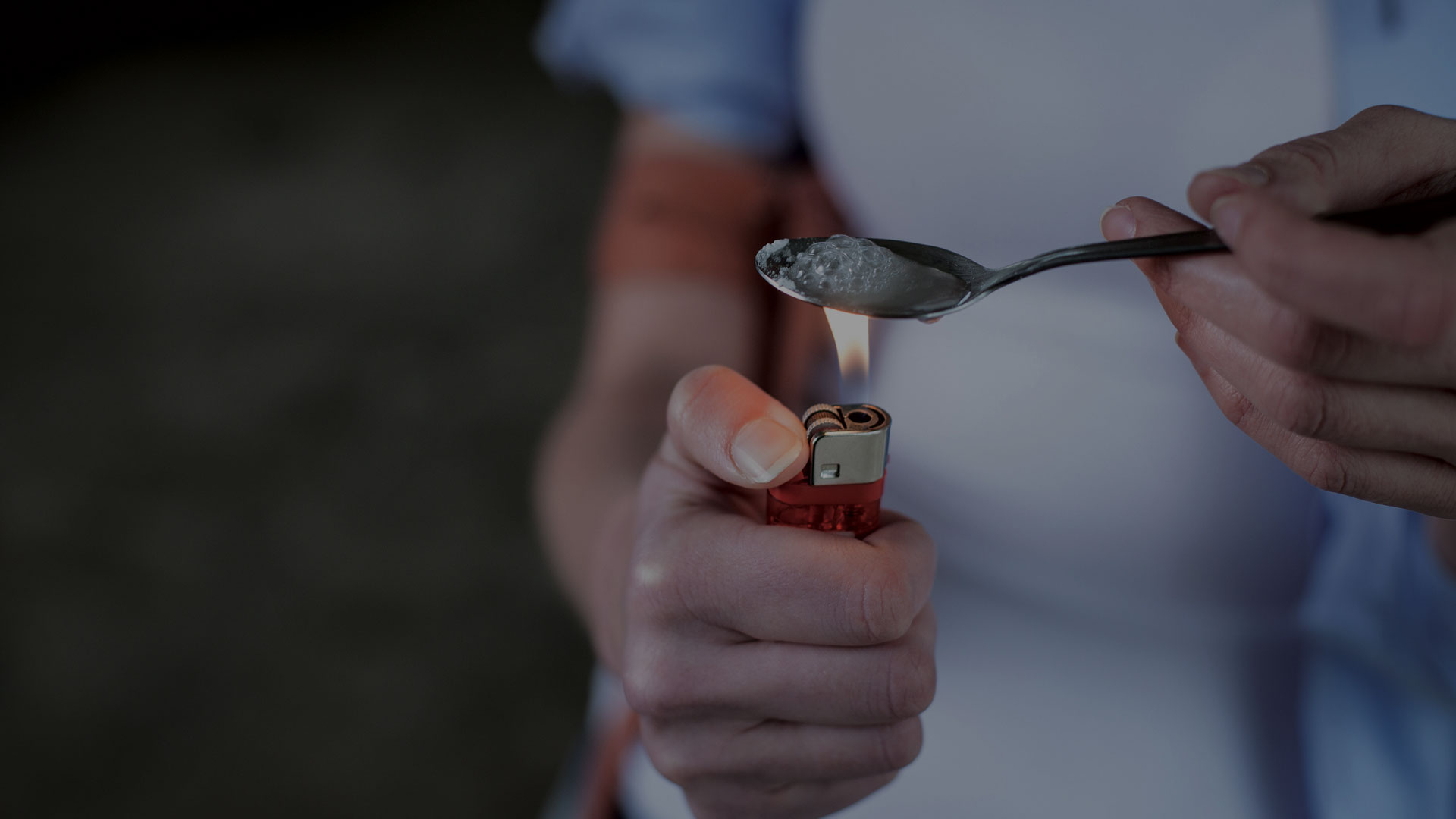09 Jun Can You Smoke Heroin? Get the Facts
Table of Content
Can you smoke heroin? The simple answer is yes. Heroin is a semi-synthetic drug from the opium poppy that comes in either white powder form, which is injected or snorted, or as thick, black tar, which is smoked. It is highly addictive and just one use of it can lead to extreme situations such as chemical dependency or heroin overdose.
When it comes to heroin use, you most often hear of it being injected in order to reach a quick and powerful high. It can also be sniffed, snorted, and smoked for those who want to avoid passing needles. Sniffing or snorting heroin is done through a nasal spray bottle in liquid form or by snorting lines (commonly when mixed with cocaine).
No matter how a person ingests heroin, the effects are the same. One method is no less addictive than the other. It creates a strong hold on the central nervous system and chemically speaking, works in the same ways as endorphins or the body’s natural painkillers.

Why Do Users Smoke Heroin?
Injection is the quickest way to feel high and occurs within 10 seconds, while heroin smoking takes longer to take effect at 10 to 15 minutes of ingesting. Drug abusers who smoke heroin call it “chasing the dragon” and use a drug paraphernalia such as a sheet of aluminum foil and a straw to ingest it.
A person holds a straw in his or her mouth, sparks a lighter underneath the foil to melt the heroin powder, which then produces a white smoke that can be inhaled. Finding foil sheets with burn marks can be a sign someone is smoking heroin.
Why do some users prefer to smoke heroin versus injecting it? The effects of both methods are the same, but inhaling heroin produces less trace of it in the blood. Users who smoke heroin perceive it as a less harmful way to ingest it rather than injecting it, which is partially true.
When a person uses a needle to inject a drug, he or she carries the risk of contracting infectious diseases such as HIV/AIDS and hepatitis. Needle sharing is common among drug users and smoking helps alleviate the fears people have with needles and the dangers associated with them.
However, smoking heroin isn’t any less harmful to the body and still comes with its own side effects and risks. Heroin smoking is no less dangerous and can cause long-term health issues including lung damage and an increase of respiratory diseases such as bronchitis or pneumonia.
Smoking heroin can also cause damage to other organs including the brain, liver, heart, and kidneys. The only thing a person avoids when ingesting heroin through smoking rather than injecting is the use of needles.
Risks of Smoking Heroin
Those who use heroin feel a rush of euphoria immediately followed by a drowsy state. It works as a depressant to the central nervous system. Short-term side effects may include nausea, vomiting, intense itching, and dry mouth.
Heroin smokers often experience a hacking cough which can lead to asthma and other respiratory issues. Smoking, in general, can wreak havoc on the lungs, but smoking black tar heroin specifically may cause a person to need the use of a machine later in life to help clear the lungs with medication and help them breathe.
“Nodding” is also a common side effect from heroin smokers. This condition is when a person feels extremely lethargic and their limbs feel heavy. Much like when a person falls asleep and jerks their head up, nodding is this in-between state of being awake and asleep. This condition can last for several hours and may be accompanied by nausea and vomiting, especially for those new to using heroin.
As with other drugs, frequent use of heroin can lead to dependency and drug addiction. When the body becomes addicted to heroin, it craves it, but also needs it in order to function properly. A person who has become addicted cannot simply stop using heroin without experiencing the unpleasant withdrawal symptoms that are attached to it.
Abruptly stopping the use of heroin can lead to unpleasant symptoms such as diarrhea, insomnia, cold flashes, tremors, and muscle pain. Drug abusers do not want to face these withdrawal symptoms and will typically turn to getting their next fix to avoid them rather than staying clean and seeking help.
Women who are pregnant and using heroin face additional health risks. There’s a chance of birthing a child with low birth weight or birth defects. Or, having a baby born with an addiction.
The ultimate risk when it comes to drug abuse and addiction is overdose and death. When a person continues to increase their dosage of heroin use at more frequent intervals, the risk of overdosing rises significantly. However, even someone who is using heroin for the first time can overdose.
Heroin abuse has become an increasingly troubling concern across the country. Over the past five years, the number of emergency room visits due to drug use increased by 65 percent. Injecting heroin used to be the most common way of obtaining a high, but the drug trend has now shifted towards smoking it.

Heroin User Long-Term Side Effects
Chronic users of heroin face long-term issues with their health. They may develop:
- Collapsed veins;
- Heart infection;
- Abscesses;
- Liver disease; and/or
- Problems with the lungs, kidneys, or brain.
A person who has become addicted to heroin not only suffers physically but mentally and financially as well. According to research from the Center for Substance Abuse Research, an average heroin addict can spend up to $200 a day to maintain their addiction.
This kind of abuse on the body can lead to problems at work, issues in personal relationships, and an inability to care for oneself or others. Heroin addiction doesn’t only hurt the person who is using. It typically affects loved ones as well.
Heroin Use Becomes National Epidemic
In fall of 2015, President Obama called for action against the war on drugs, specifically the rapid increase of heroin use. As part of the efforts, he met with health care professionals, law enforcement, community leaders, and families who had been affected by heroin addiction.
He called the prescription drug and heroin abuse a national epidemic and put plans into motion to not only raise awareness but call for action from people from across the country. His action items included: prescriber training in order to educate medical personnel who are prescribing medication and improved accessibility to treatment for those who may need financial assistance for detox and recovery.
What once was considered a street drug only used in the inner city areas has now infiltrated affluent suburbs as well due to its connection to prescription drugs. Drug users who have become addicted to their prescribed pain medication have now turned to heroin in order to get their high. Others who seek it out recreationally find it easier to obtain than ever before.
Heroin belongs to the same category of drugs as common prescription medications such as oxycodone, morphine, hydrocodone, and methadone. There has been a huge influx of heroin-related overdoses, the numbers nearly doubling between 2011 and 2013.
The American Society of Addiction Medicine reports that 586,000 Americans 12 years of age or older had a substance abuse disorder involving heroin powder in 2014. In that same year, there were 10,575 heroin overdose deaths and 18,893 overdose deaths related to prescription pain medication. Motor vehicle accidents used to be the top contributing factor of deaths in America. Now, it’s overdose.
How Long Does It Take for Heroin to Clear Your System?
Heron is considered a short-acting drug with a half-life spanning between 3 and 8 minutes. Meaning that after heroin has been ingested, half of the drug has been cleared from the system in less than 10 minutes. It’s wrong to assume, however, that by the time the high is over, the heroin is fully out of the body.
On average, the half-life is between 1.5 and 7 hours, which means it will take at least 1.6 days for it to be fully eliminated. Depending on how much heroin has actually been ingested will determine how long it takes for the body to fully metabolize and excrete it.
Several factors come into play when trying to determine how long heroin will stay in the system. A person’s age, weight, and diet can all affect the metabolization rate. Of course, the rate of ingestion and dosage amounts are key influencers to how long the body will hold on to the drug.
For people who smoke heroin, a higher-grade product is typically used and is quickly absorbed by the lungs, which means that it misses the first chance of metabolism by the liver. As a result, the drug stays within the body longer than had it been ingested orally.
Treatment Options for Heroin Addiction
Addiction changes the way the mind works and how the body functions. For a person to want to quit drug use, it’s not as easy as someone deciding to stop injecting or smoking heroin. When the body has become dependent on the drug, it requires a detoxification process in order to withdraw from it in a safe way. This is best done with medical supervision and professional support.
A detox facility is well-equipped to help people withdraw from heroin in as comfortable of the atmosphere as possible. There are trained professionals who can administer medication, which can help with the painful withdrawal side effects. These can include everything from shaking and sweating to muscle spasms and depression.
Staff members can provide the assistance needed for someone going through the intensity of detox. It’s not ideal for a person to face it alone.
Once the drug has been cleared out of the system, the next step is recovery. In recovery, an addict learns how to prevent relapse and face their addiction issues head on. Patients will confront what triggers them to use and what coping mechanisms will be helpful in order to avoid following the same path down the road.
There is both inpatient and outpatient care available during the recovery period. Often, people choose to detox and enter recovery at the same facility, but others choose to partake in this rehabilitation part at home while checking in with an outpatient center. The value of inpatient care is it allows a patient to fully focus on recovery without the temptation or distractions from the outside world.
With any treatment plan, individual or group therapy sessions, educational classes, and activities are part of the process to help patients learn to live a life drug-free. Everyone who goes through the process is given the tools and support they need to make it through to a successful recovery without relapse.
Get Help for Heroin Addiction
Addiction treatment will look a little differently for each person because it’s important for a plan to be customized on an individual basis. Most commonly, care will include a combination of detox, rehabilitation, and therapy.
Some may decide to enter an inpatient residency, while others may pursue their recovery while still at home. Some people may choose to stay 30 days while others will choose to stay 3 months. Unfortunately, relapse is quite common and there may be set backs, but this process is equally important to becoming sober. People will enter heroin addiction treatment at different stages and will work within their own timeline to get better.
The road is never quite the same for anyone, but there is always the support of those who are passionate about helping people achieve success with their sobriety. If you are ready to take your first step towards building a healthier and happier future, we’re here to help.
Sources:
“Smoking Heroin: Risks and Effects on the Body.” American Addiction Centers. 8 Mar. 2019. https://americanaddictioncenters.org/heroin-treatment/risks-and-effects
T., Buddy. “The Various Ways Heroin is Taken.” Verywell Mind. 15 Nov. 2018. https://www.verywellmind.com/how-is-heroin-used-63225
“Opioid Facts for Teens.” NIH. 8 Mar. 2019. https://www.drugabuse.gov/publications/opioid-facts-teens/opioids-heroin



 678-771-6411
678-771-6411


No Comments